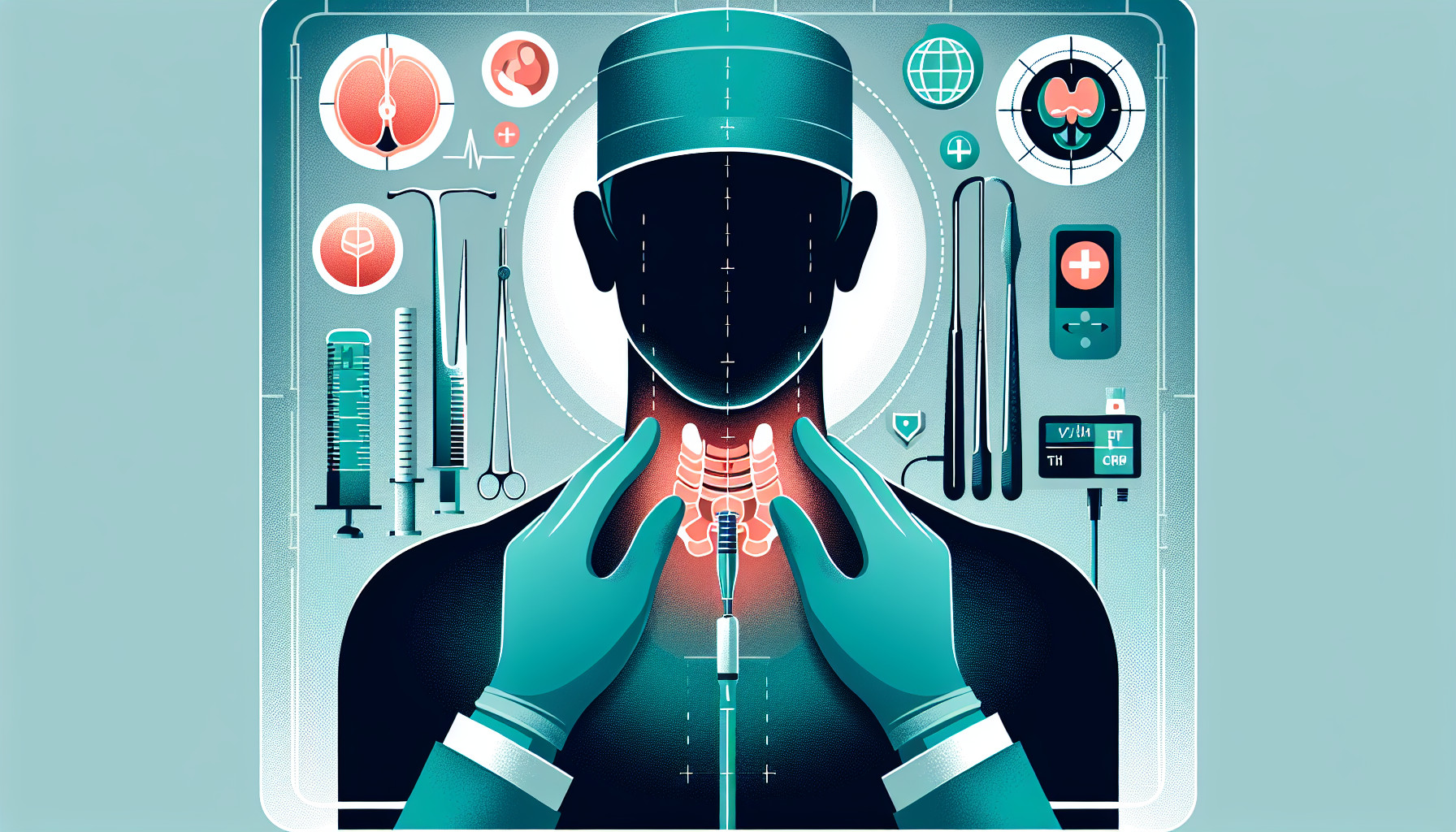Our Summary
This research paper discusses a drug called calcimimetics, which was released in 2006 and is used to decrease levels of parathyroid hormone, calcium, and phosphate in patients with hyperparathyroidism (a condition causing an overactive parathyroid gland) who are on long-term dialysis. The authors review the drug’s influence on parathyroidectomy, a surgical procedure to remove the parathyroid glands.
While calcimimetics cannot cure hyperparathyroidism, it can enhance heart function before surgery by reducing parathyroid hormone levels. The authors note that heart failure shouldn’t necessarily stop a parathyroidectomy from happening. They also stress the importance of surgery before irreversible damage to organs occurs.
Furthermore, they emphasize the need for regular checks to prevent limb gangrene (dead tissue caused by lack of blood flow), as this is a serious complication. They also point out that more attention should be given to renal osteodystrophy (a bone disease that occurs when the kidneys fail to maintain the necessary balance of minerals in the blood and bones), which can indirectly lead to death and greatly reduces quality of life for patients with hyperparathyroidism.
The paper concludes by highlighting the dangers of late referrals for parathyroidectomy, which can result in more complex patient conditions. Improved communication between kidney specialists and surgeons is necessary to determine the best time for surgery. Lastly, the authors suggest a future direction for the surgical treatment of hyperparathyroidism.
FAQs
- What is the role of calcimimetics in the treatment of hyperparathyroidism for patients on long-term dialysis?
- Can calcimimetics cure renal hyperparathyroidism?
- How does delayed referral to parathyroidectomy affect patients with renal hyperparathyroidism?
Doctor’s Tip
One helpful tip a doctor might tell a patient about parathyroidectomy is to make sure to follow all post-operative instructions closely, including any restrictions on physical activity and medications. It’s important to attend all follow-up appointments to monitor healing and ensure proper recovery. Be sure to communicate any concerns or changes in symptoms to your healthcare provider promptly.
Suitable For
Patients with primary hyperparathyroidism (PHPT) who are symptomatic, have severe hypercalcemia, impaired renal function, osteoporosis, or kidney stones are typically recommended for parathyroidectomy. Patients with secondary hyperparathyroidism (SHPT) who are on long-term dialysis and have persistent hyperparathyroidism despite medical management may also be recommended for parathyroidectomy. Additionally, patients with tertiary hyperparathyroidism, characterized by autonomous hyperparathyroidism after renal transplantation, may also benefit from parathyroidectomy.
Timeline
Before Parathyroidectomy:
- Patient is diagnosed with hyperparathyroidism (HPT) and may experience symptoms such as fatigue, weakness, bone pain, and frequent fractures.
- Patient undergoes various tests to confirm the diagnosis, including blood tests to measure levels of calcium, phosphate, and parathyroid hormone (PTH).
- Patient may be prescribed medications such as calcimimetics to help manage symptoms and lower PTH levels.
- If symptoms worsen or if complications such as kidney stones or bone fractures occur, patient may be recommended for parathyroidectomy.
After Parathyroidectomy:
- Patient undergoes surgery to remove the overactive parathyroid gland(s) causing HPT.
- Following surgery, patient may experience a decrease in symptoms such as fatigue, bone pain, and kidney stones.
- Patient will need to follow up with their healthcare provider for monitoring of calcium, phosphate, and PTH levels to ensure they remain within normal range.
- Patient may need to take calcium and vitamin D supplements to help maintain proper levels of these nutrients in the body.
- Overall, patient should experience an improvement in quality of life and a reduced risk of complications associated with HPT.
What to Ask Your Doctor
- What are the potential risks and complications of a parathyroidectomy procedure?
- How long is the recovery period after a parathyroidectomy?
- Will I need to take any medications or follow a special diet after the surgery?
- What are the expected outcomes of the surgery in terms of improving my symptoms and overall health?
- How often will I need follow-up appointments after the surgery?
- Are there any alternative treatments to parathyroidectomy that I should consider?
- How experienced are you in performing parathyroidectomy procedures?
- What is the success rate of parathyroidectomy in patients with my specific condition?
- How will my calcium and phosphate levels be monitored after the surgery?
- Are there any specific lifestyle changes I should make to support the success of the surgery?
Reference
Authors: Lee CH, Chen JY, Kuo PC, Chen WT. Journal: J Chin Med Assoc. 2022 Mar 1;85(3):279-285. doi: 10.1097/JCMA.0000000000000694. PMID: 35259131
